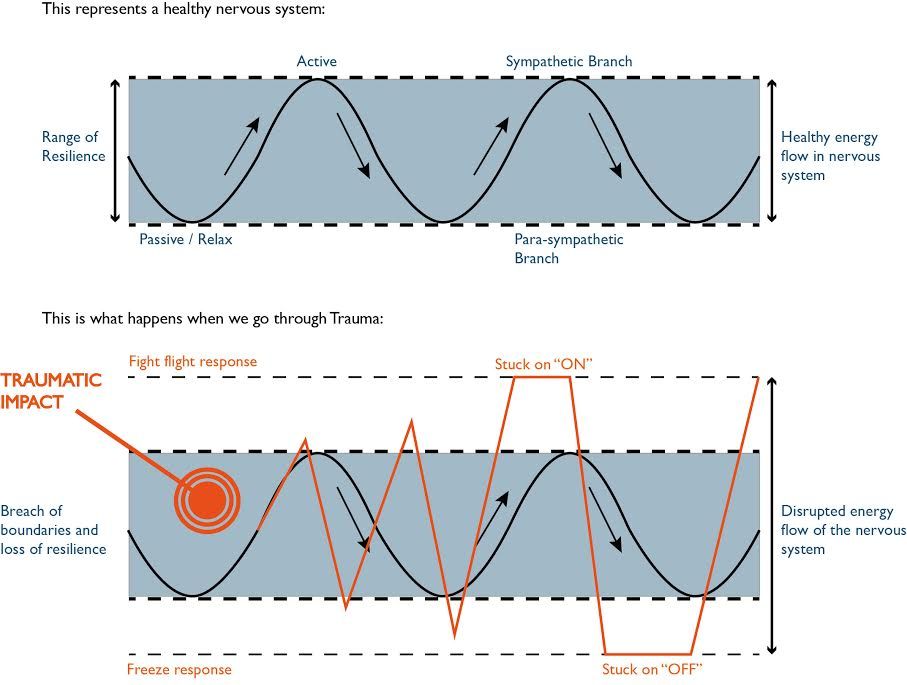Keywords: Fight or flight.
Trauma and its effects are bound by the story of what happened to us, core emotions of fear, anger or sadness and a loss of control, and a sense of overwhelm and helplessness.
In terms of the nervous system, trauma is a breach in boundaries of its capacity to hold, contain and process. A break of the normal flow of resilience between activation and relaxation.
Trauma and its effects are bound by the story of what happened to us, core emotions of fear, anger or sadness and a loss of control, and a sense of overwhelm and helplessness.
The nervous system has an "active" part that stimulates the brain and the muscular-skeletal system. And, a "relaxation" part that stimulates the digestive system and immune system.
A Visual Representation of The Fight or Flight, and The Freeze Response
When healthy boundaries have been breached due to trauma, we swing between hyperactivation--fight and flight responses-- and hypoactivation or the freeze response. Each has its own set of distinct symptoms.
- Stuck on "ON" Fight-flight, hyperactivation symptoms: anxiety, panic, hyperactivity, exaggerated startle, inability to relax, restlessness, hypervigilance, digestive problems, emotional flooding, chronic pain, sleeplessness, hostility, rage.
- Stuck on "OFF" - Freeze, hypoactivation symptoms: depression, flat affect, lethargy, deadness, exhaustion, chronic fatigue, disorientation, disconnection, dissociation, complex syndromes, pain, low blood pressure, poor digestion.
Trauma is the uncompleted biological process of hyperactivation; when you do not have the possibility to escape or fight, the freeze response kicks in as an ultimate survival strategy. As Peter Levine puts it: "It is as if our instinctive survival energies are all dressed up with no place to go."
A major part of successful trauma work is to address the body and the nervous system in a way which brings these processes to a natural completion.
How is the fight or flight and freeze response for you? Leave your comment below.

